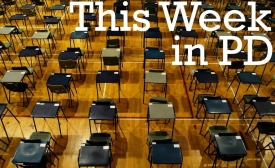russia
Negotiating a peaceful end to the Cold War was a great diplomatic achievement. A little over two decades later, however, we can see that post–Cold War diplomacy did not create a stable international system. Why did diplomacy succeed at the one task, yet fail at the other?
The fact that families run from a war zone is heartbreaking but hardly unexpected. (...) Most of those who fled were Russian speakers from the east, but this still raises a sobering question: If this is a conflict between Ukraine and Russia, why did so many Ukrainians choose to cast their lot with the enemy?
The British Museum’s director is adept at forging links where politicians have failed. As Russia’s Hermitage gains from his latest negotiations over the Parthenon marbles, one BBC journalist recalls watching past triumphs unfold
Geoffrey Robertson and Amal Clooney helped Greece fight for the return of the Elgin Marbles. Britain refuses to listen, but has shocked the art world by secretly loaning one of the antiquities to Russia.

At the center of this week's public diplomacy news is the power and relevance of public opinion in today's globalized world.
Moscow is waging a highly effective information war in Estonia, Latvia and Lithuania with its “Russia Today” television broadcasts in their national languages, a war that the West must respond with its own efforts, according to Elina Lange-Ionatamishvili, a NATO specialist on counter-propaganda.
Like Ukraine, Moldova has become a geo-strategic competition between Brussels and Moscow. And like Ukraine, Russia will be determined not to let the country slip away from its influence. As shown during the election campaign, Russia will attempt to use its version of soft power to continue to meddle in Moldova.
Twenty-five years after the fall of the Berlin Wall signaled the collapse of the Kremlin’s grip on eastern Europe, Russia is reasserting some of its lost influence. That is most obvious in Ukraine, where unmarked tanks roll across the countryside in support of pro-Russian separatists.







